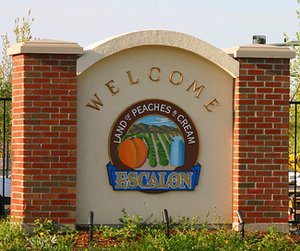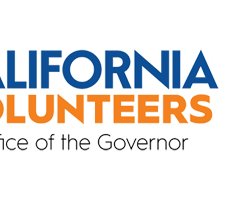A long-ago proposal to construct a grade separation in Escalon is back in the forefront, with Escalon city officials looking to host a public workshop on the plan.
Tentative date set for the workshop is Monday, March 23 at 6 p.m. at the Escalon Community Center.
City Council members met in special session in February to hear the results of a grade separation study and decide how to proceed. City Manager Greg Greeson said when the Measure K Renewal Program was put before San Joaquin County voters in November 2006, one of the projects indicated for funding was the Escalon Railroad Grade Separation Project. Since voters approved extending the existing half-cent sales tax in the county from 2011 to 2014, some of those funds have been earmarked for the grade separation project.
"We as a community have the obligation to look at this," Greeson said.
A feasibility study was conducted for the grade separation by BKF, an engineering consulting firm, which had a representative on hand for the special council meeting to outline the results.
Greeson said the public workshop will include a similar presentation, followed by discussion.
"There will be an overview, including a power point presentation and aerial photographs, basically going over the ones that were studied," Greeson said of sites recommended for possible grade separation.
The presentation will include a review of all sites that were considered, with additional information provided on the five identified preferred alternatives.
Those alternatives are: Liberty Business Park Extension, State Route 120, McHenry Avenue, First Street and Third Street.
The feasibility study was the first step in the process and the public workshop will be the second. From there, Greeson said, officials hope to get a clear direction.
"Since early 2008, City staff, along with the San Joaquin Council of Governments staff, has been working together with BKF," Greeson wrote in his staff report to council. Work over the past year has focused on identifying and evaluating the possible railroad grade separation.
While officials said money has been earmarked for the project and additional funds are anticipated in the future with the extension of Measure K, Greeson said changes over the past couple of years have actually lessened the need for the separation.
Installation of double tracking, for instance, has greatly reduced the blockage of intersections by trains throughout the city.
"It is not as big an issue as it once was," Greeson agreed.
But with voters approving the Measure K extension with this project included and the backing of the Council of Governments, Greeson said the city will follow through on the study and workshop.
What they have to decide, however, is whether the project itself is worth going through with now, given the reduction of train problems, the uncertainty of city finances - some city funds would also have to be spent on the project - and the anticipated disruption caused by any one of the five suggested alternatives.
"Ultimately it becomes the citizens of this community that will make the decision," Greeson said. "We have to determine, do we want it, given the impact and the cost."
Meanwhile, in another city issue, officials have tentatively set a groundbreaking for the new Police Department facility portion of the Civic Center project, with the first shovels hitting the dirt in a 5 p.m. ceremony on Wednesday, March 11 at the McHenry Avenue location.
Tentative date set for the workshop is Monday, March 23 at 6 p.m. at the Escalon Community Center.
City Council members met in special session in February to hear the results of a grade separation study and decide how to proceed. City Manager Greg Greeson said when the Measure K Renewal Program was put before San Joaquin County voters in November 2006, one of the projects indicated for funding was the Escalon Railroad Grade Separation Project. Since voters approved extending the existing half-cent sales tax in the county from 2011 to 2014, some of those funds have been earmarked for the grade separation project.
"We as a community have the obligation to look at this," Greeson said.
A feasibility study was conducted for the grade separation by BKF, an engineering consulting firm, which had a representative on hand for the special council meeting to outline the results.
Greeson said the public workshop will include a similar presentation, followed by discussion.
"There will be an overview, including a power point presentation and aerial photographs, basically going over the ones that were studied," Greeson said of sites recommended for possible grade separation.
The presentation will include a review of all sites that were considered, with additional information provided on the five identified preferred alternatives.
Those alternatives are: Liberty Business Park Extension, State Route 120, McHenry Avenue, First Street and Third Street.
The feasibility study was the first step in the process and the public workshop will be the second. From there, Greeson said, officials hope to get a clear direction.
"Since early 2008, City staff, along with the San Joaquin Council of Governments staff, has been working together with BKF," Greeson wrote in his staff report to council. Work over the past year has focused on identifying and evaluating the possible railroad grade separation.
While officials said money has been earmarked for the project and additional funds are anticipated in the future with the extension of Measure K, Greeson said changes over the past couple of years have actually lessened the need for the separation.
Installation of double tracking, for instance, has greatly reduced the blockage of intersections by trains throughout the city.
"It is not as big an issue as it once was," Greeson agreed.
But with voters approving the Measure K extension with this project included and the backing of the Council of Governments, Greeson said the city will follow through on the study and workshop.
What they have to decide, however, is whether the project itself is worth going through with now, given the reduction of train problems, the uncertainty of city finances - some city funds would also have to be spent on the project - and the anticipated disruption caused by any one of the five suggested alternatives.
"Ultimately it becomes the citizens of this community that will make the decision," Greeson said. "We have to determine, do we want it, given the impact and the cost."
Meanwhile, in another city issue, officials have tentatively set a groundbreaking for the new Police Department facility portion of the Civic Center project, with the first shovels hitting the dirt in a 5 p.m. ceremony on Wednesday, March 11 at the McHenry Avenue location.





